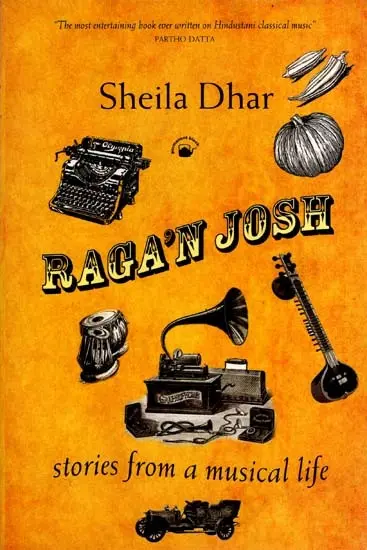
| Item Code: | IDI500 |
| Publisher: | Permanent Black |
| Author: | Sheila Dhar |
| Edition: | 2017 |
| ISBN: | 8178242443 |
| Pages: | 311 |
| Cover: | Paperback |
| Other Details | 8.5" X 5.5 |
From The Jacket
Sheila Dhar (1929-2001) studied at Hindu College, Delhi, and obtained her MA in English (with the highest distinction: summa cum laude) from Boston University. Though she wrote essays and stores with a skill possessed only be the rarest of raconteurs, the passion of her life was Hindustani classical music, which she performed, studied, and wrote about with profound insight and an uncommon wit. She served on the board of the Sangeet Natak Akademi and was advisor for music to the Indian Council of Cultural Relations.
Marred to the economist P.N. Dhar (who was for many years Indira Gandhi's closest advisor), she also had occasion to observe the workings of India's bureaucracy and political elites. She turned her pen on them with equal facility, summing up the pomposity and stupidity of babudom through incomparable real-life stores that are unlike anything written in modern Indian English.
Sheila Dhar's books include Childern's History of India (1961); This India (1973); and Here's Someone I'd Like You to Meet (1995).
Introduction
If a memoir needs a reason, mine is simply that wonderful things become even more wonderful for me if I can share them a dreadful things more bearable. The delightful and the biter both seem more valid if I can believe that I am not the sole experiencer. Driven by this infirmity, I have over the years compulsively told and retold some of the stories that appear here. They have lived and become old in the minds of my friends. At some point Lalita and Zainub who are closest tome began to ask why I did not write instead of talk.
That was a sobering thought because it implied a wider audience, which might not necessarily be as receptive. Clearly the writing venture called for a different kind of telling. For one thing, the vocal inflections and mimicry I used to rely on to draw character had to gave place to descriptions, of both the people in these tales and of the setting in which they appeared in my life. For another, I had to render each experience from the Indian dialect in which it originally happened into its rough English equivalent. This exercise demanded more concern-tration and effort than relating anecdotes, but the heady feeling that many more companions might now wander into my world was reward enough.
On the whole I felt that in urging me to write, my friends had done me a favour. They had forced me down to a deeper layer of myself. I am a singer and unrolling the pictures in my mind through the written word felt exactly like singing. At any rate it took me to the very place I occupy in my head and heart when I try to express my whole self through the idiom of music. This realization made me ask myself, seriously for the first time, what it is that I am really saying when I sing. I knew from the accumulated lore of a lifetime in music that a conscious switching off of everything one has learnt is a necessary prerequisite for a genuine musical performance. For me the act of singing ideally means recognizing and intensifying my own identity, and communicating it in the rigorous traditional idiom of an ancient musical language. This ideal is not always achieved, but when It is, my musical utterance inalienably carries within it the flavour of everything that has ever happened to me, and of all the emotional landscapes I have traversed. The feel of my grandfather's beard, the smell of the dank basement in our childhood home, the aroma of my Ustad's cooking, the sense of wonder I experienced at the pristine innocence of the Queen of Tonga, the sound of Siddheshwari's very musical but hearty belly laughs, the unbelievable simplicity behind Mohan Rao's eccentricities, the despair and the delight, the green Chillies and black pepper of life itself are all within me and therefore a part of the body of my music.
If I were to take myself apart like a mechanical toy, and then try to retrieve the main parts from the debris of twisted wire and broken springs, I would at this point store them for possible reassembly in three bags clearly marked 'Home', 'Musicians' and 'Other People'. This is why I have retained these three labels for the reflections in this book. Most of the material has to do with Indian classical musicians and their world which it has been my life's ambition to enter, but there are some accounts of unforgettable people and events outside it as well.
I love and admire the artistes that figure in this book. The eccentricities and frailties I have described do not diminish them in any way. On the contrary, they are intended to enhance the charms of their rich personalities.
As for the events I recount, they are the prisms through which I saw life and the transmitters of the cultural sounds I heard. In recalling them, I find once again the people, voices, and scenes that populate and nurture my spirit and the music within me.
The anecdotes that follow are not arranged chronologically but form a continuous narrative with overlapping threads. These are of different lengths and textures, and frequently break off, giving the whole fabric a random look. But for me that itself is the reality.
|
|
||
| Acknowledgements | 3 | |
| Introduction | 4 | |
| Home | ||
| 1 | Number Seven, Civil Lines | 6 |
| 2 | Persian Couplets and One Green Chilli | 19 |
| 3 | Baua | 24 |
| Musicians | ||
| 4 | If Music Be the Love of Food | 38 |
| 5 | Playing for the Flowers | 49 |
| 6 | Pran Nath: An Odyssey | 58 |
| 7 | Begum Akhtar to the Rescue | 87 |
| 8 | Siddheshwari: A Bird of Paradise | 113 |
| 9 | The Muse and the Truck Drivers | 134 |
| Other People | ||
| 10 | Mrs Henderson from Ohio | 152 |
| 11 | The 'Cent per Cent' Gandhian | 167 |
| 12 | Cat Among the Bureaucrats | 186 |
| 13 | Mrs G and the Queen of Tonga | 196 |
|
|
||
| Publisher's Note | 2212 | |
| 14 | Sound and Hindustani Music | 213 |
| 15 | The Raga: An Inward Journey | 217 |
| 16 | Reflections on the Kirana Legacy | 224 |
| 17 | The Cooking of Music | 238 |
| 18 | Fear of Recording: The Non-Westernness of Hindustani Music | 244 |
| 19 | Sunlight in the Raga | 252 |
| 20 | Begum Akhtar | 260 |
| 21 | Go, Lady, Go: Lady Linlithgow and the Taming of Raga Adana | 268 |
| 22 | A Taste of British Guiana | 274 |
| 23 | The Many-Splendoured Harmonium | 281 |
| 24 | The New Face of Listening | 288 |
|
|
||
| Two Obituaries of Sheila Dhar | 305 |
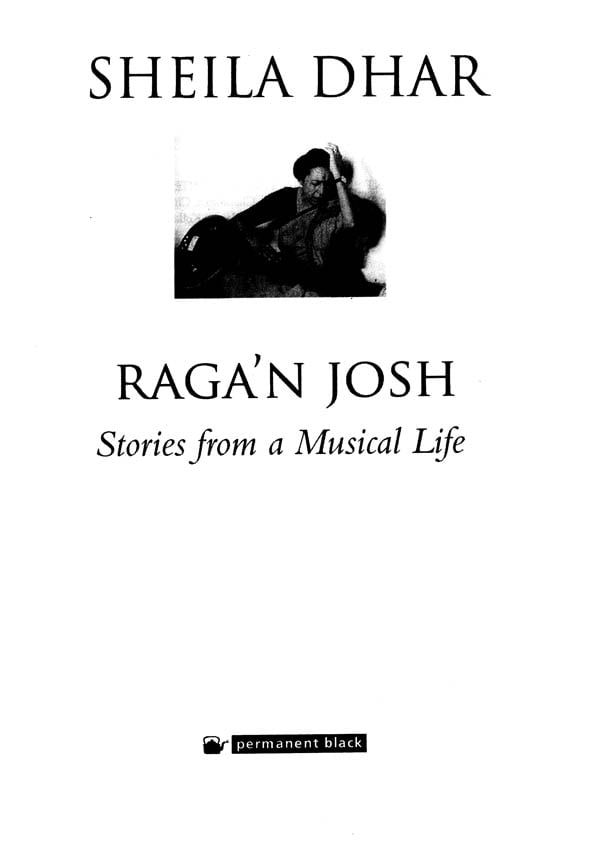
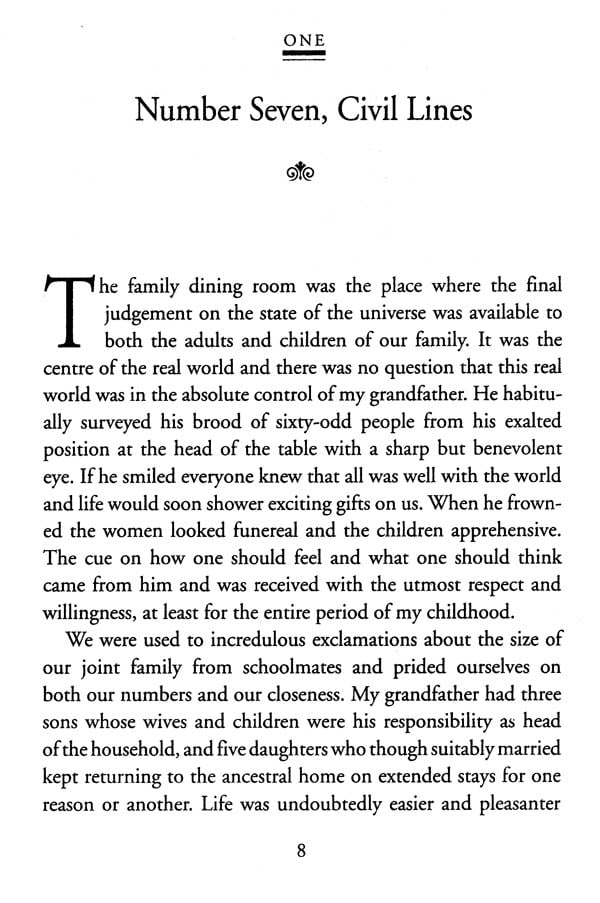
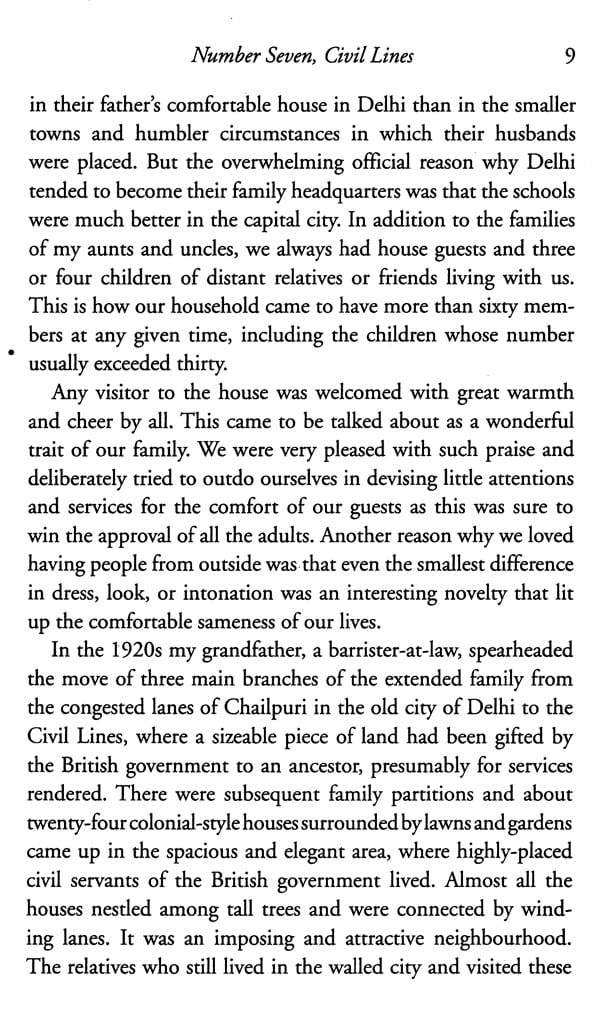
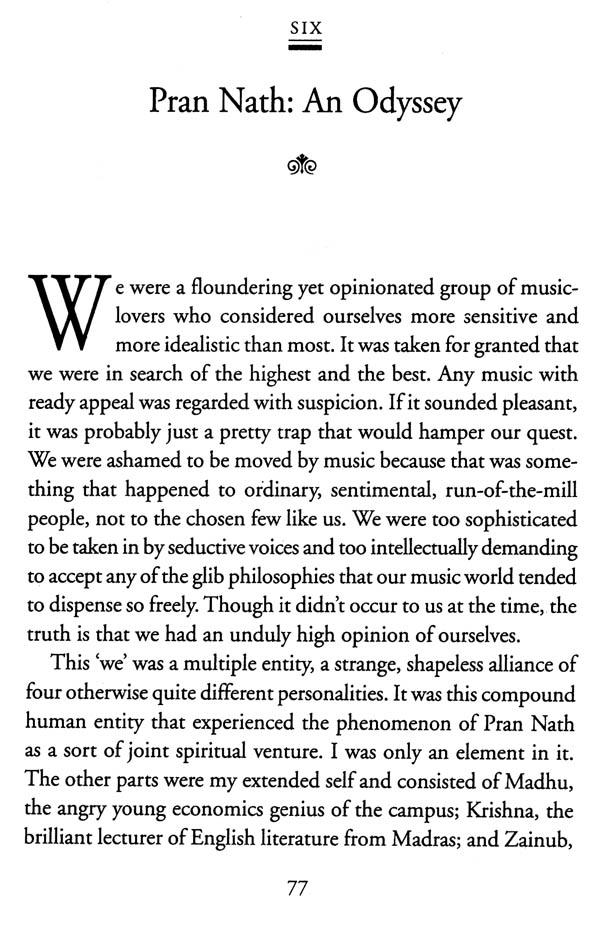
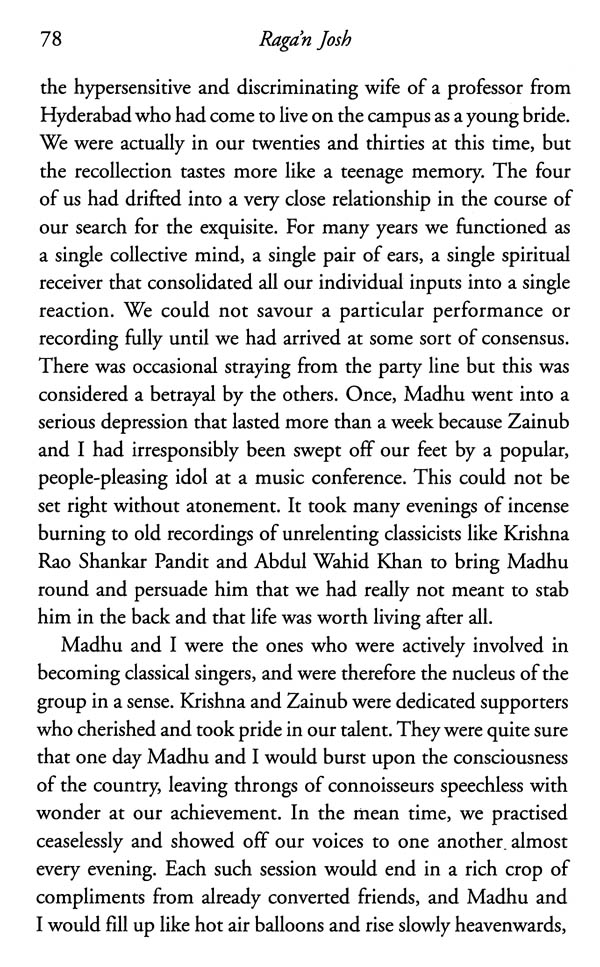
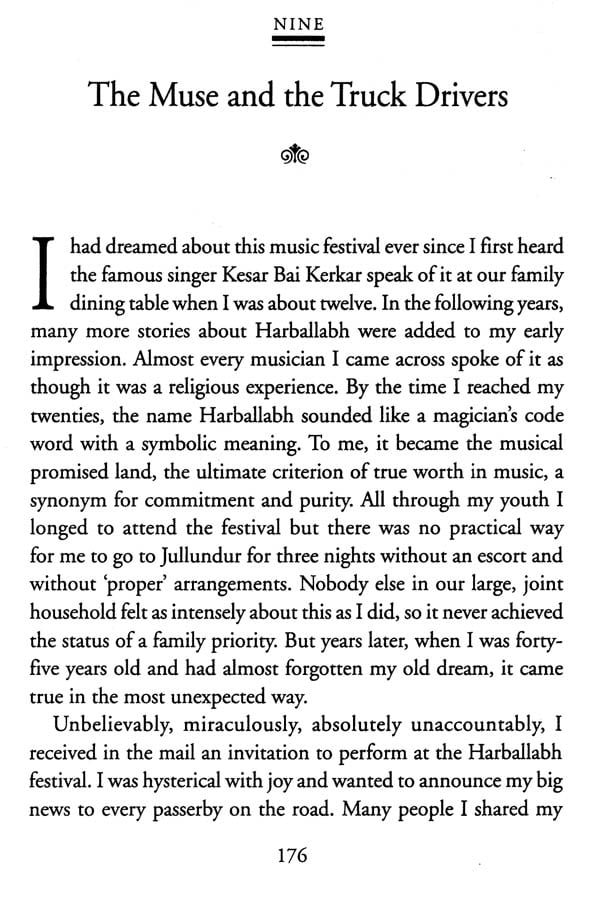
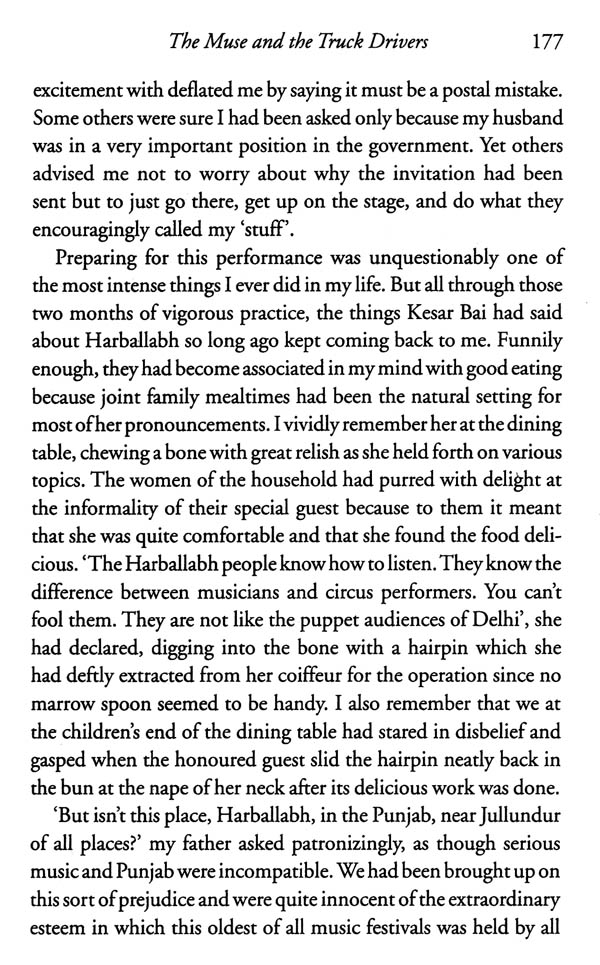
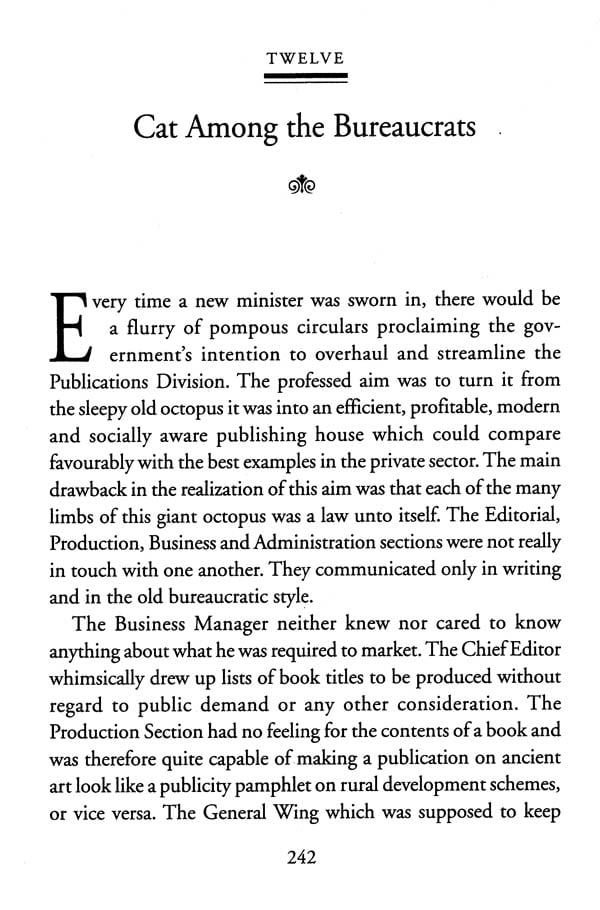
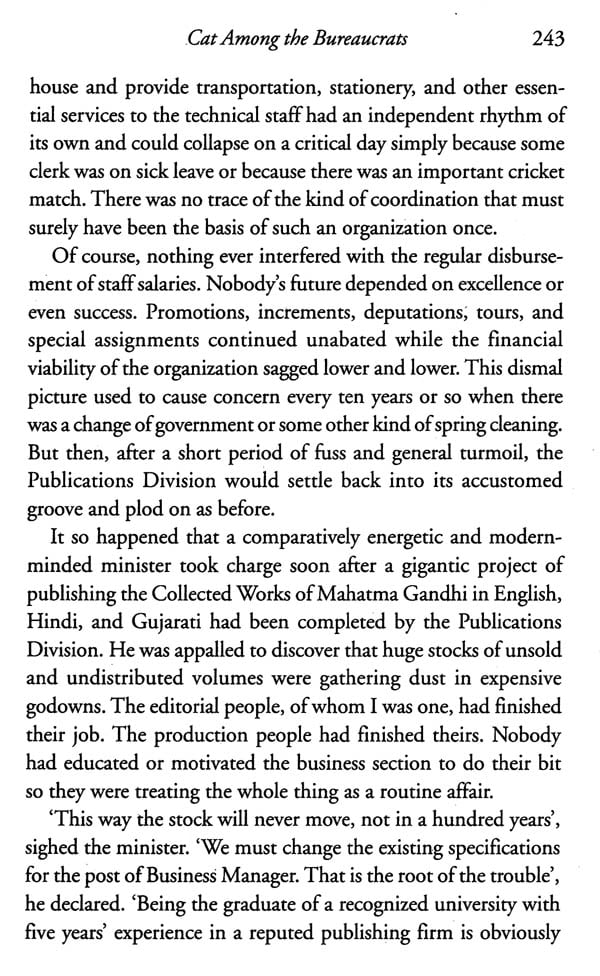
Send as free online greeting card
